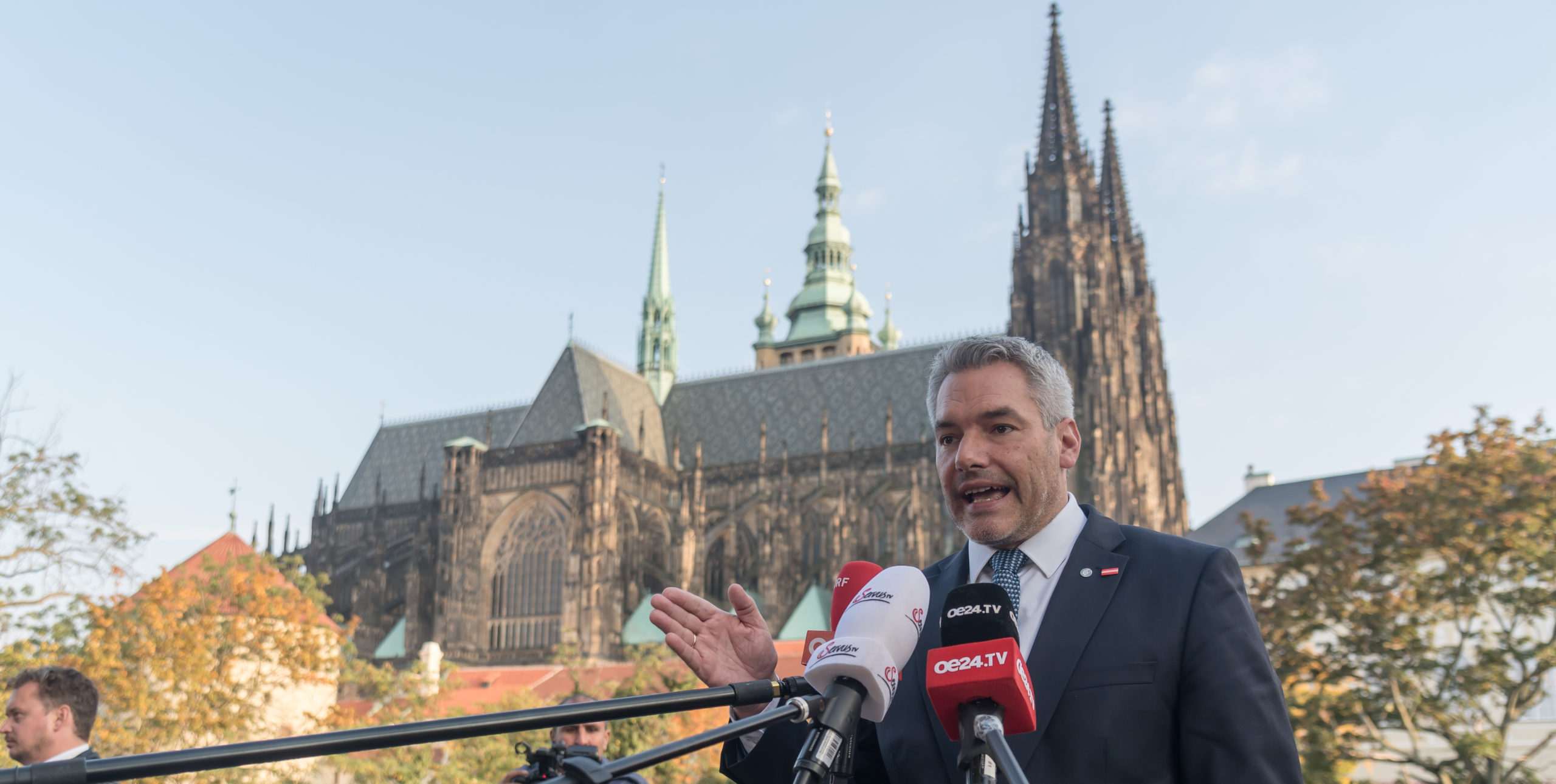As countries like Switzerland and Sweden have abandoned their policy of neutrality in response to the Russian invasion, one country has refused to budge. In recent weeks, Austria has become the centre of heated discussion over its neutrality, with critics arguing that it should provide military support to Ukraine. Earlier this month, a letter whose signatories included Austrian politician and First Vice-President of the European Parliament Othmar Karas called for a new line on the country’s security policy.
The desire to militarise is understandable in the face of the Ukrainian conflict, but it fails to account for Austria’s unique history. Led by a cadre of shrewd politicians in the 1950s, Austria avoided being separated or under permanent occupation by turning itself into a neutral country. This position was balanced by being ideologically part of the West, but traditionally tied to the East due to a long shared history with Central and Eastern European nations that once were part of the Austrian-Hungarian Empire.
Small but beautiful, Austria managed to attract the UN to its capital while simultaneously being a hub for all kind of spy activities, a role that was often embraced as being part of Austria’s identity as a self-proclaimed “bridge builder.” This self-perception started in the 1970s under Chancellor Bruno Kreisky, a social democrat who still enjoys cult-status years after his death for his pro-Arab positions (despite being Jewish himself) and establishing his country as a place for negotiations of world powers.
The historical background is important to understand why, for example, support for Ukraine is lower in Austria than in other European countries. The population sees neutrality as part of its identity, and would like to stay as disengaged from world politics as possible. In light of the war in Ukraine, however, this part is becoming harder to play. The current chancellor Karl Nehammer was the first and only European to visit Moscow after the invasion begun, and Austria’s president Alexander van der Bellen has visited Kiev. Keeping communication channels with both sides falls in line with Vienna’s general approach to foreign policy.
With the war ongoing, there is growing demand both internationally and domestically to show stronger support for Ukraine and take a tougher stance on Russia. But in distinctly Austrian fashion, the government in Vienna has issued 18 visas for a Russian delegation to attend the OSCE Parliamentary — despite the entire delegation led by the Russian Duma’s deputy speaker, Pyotr Tolstoy, being under EU sanctions. This follows another scandal that involved Austrian authorities deporting two children to Russia. It therefore comes as no surprise that accusations are mounting that Russia has too much influence in Austria, but this influence plays a smaller role than Austria’s own foreign policy traditions.
Contrary to many of the public voices calling for a harder approach vis-à-vis Russia, the general population stubbornly sticks to the dogma of neutrality. It has indeed served the country well in the past, so one can understand the motivation, but at the same time it is hard to pretend that the clocks have stopped ticking on 23rd February, 2022.
All of this portends to larger unresolved questions in the EU, which has to face the fact that some member states like Austria do not see the Union being a unified geopolitical actor, but a club to pursue one’s goals. As long as the world remained relatively peaceful, different views could be glossed over – but time has run out.











Join the discussion
Join like minded readers that support our journalism by becoming a paid subscriber
To join the discussion in the comments, become a paid subscriber.
Join like minded readers that support our journalism, read unlimited articles and enjoy other subscriber-only benefits.
Subscribe